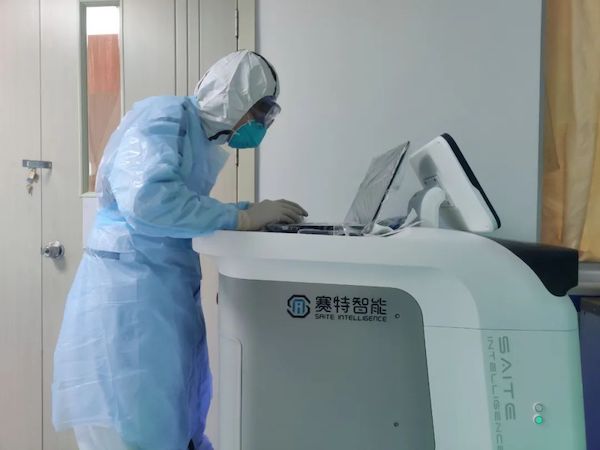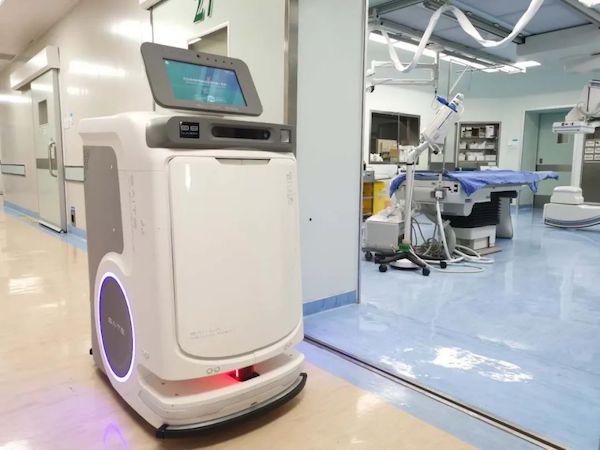Huangpu robots to operate in Leishenshan, Fang Cang makeshift hospital
Source: eng.gdd.gov.cn | Updated : 2020-03-02Robots developed by Guangzhou's Huangpu district based Saite Intelligence have passed strict tests and will soon be sent to Leishenshan Hospital and Fang Cang makeshift hospital in Hubei's Wuhan.
The robots are expected to undertake tasks, such as delivering medicine and food at the intensive care units at the hospitals, as well as collecting medical waste to relieve the burden of front line medical staff members and reduce the risk of cross-infection among them.
Each robot can undertake the work load of three people and it can work continuously for eight hours after being fully charging. The robot will automatically return to the charging pile when it is free, so that it can theoretically operate 24 hours a day.
The man-machine interface of the robot applies three methods in managing access rights, namely facial recognition, fingerprint recognition, and card swiping, to ensure correct deliveries.

The man-machine interface of the robot applies facial recognition, fingerprint recognition, and card swiping in managing access rights to ensure correct deliveries.
Solid-state radar is installed on two sides of the robot, allowing it to accurately evaluate the side distance, avoiding collision under any circumstances. The binocular camera can help the robot identify objects and avoid obstacles.
An ultraviolet disinfection lamp is applied in the robot, which can carry out automatic disinfection and purification. The shell of the robot is made of anti-corrosion medical materials.

An ultraviolet disinfection lamp is applied in the robot, which can carry out automatic disinfection and purification.
The system of the robot can be connected with the systems of doors and elevators in the hospital, ensuring that the robot can open doors and take elevators automatically.
- Investment and Entrepreneurship
- Investment Advantages
- Investment Guide
- Policies
- Key Projects
- Major Industries
- Industrial Parks
- Investment Opportunities
- Technological Innovation
- IPR
- Enterprises
- Talents
All rights reserved. Presented by China Daily
粤ICP备16087157号-1










